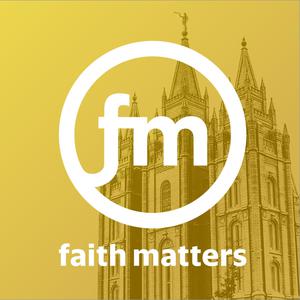
Faith Matters
Faith Matters Foundation
Faith Matters offers an expansive view of the Restored Gospel, thoughtful exploration of big and sometimes thorny questions, and a platform that encourages deeper engagement with our faith and our world. We focus on the Latter-day Saint (Mormon) tradition, but believe we have much to learn from other traditions and fully embrace those of other beliefs.
- 1 hour 29 seconds213. Leading Deseret Book — A Conversation with Laurel Day
We’re really excited to share this episode with you. It was with someone we’ve wanted to talk to for a very long time — Deseret Book president Laurel Christensen Day. We knew from afar that she was a trailblazing leader and a thoughtful publisher — and we were not surprised to find that as we got to know her a little bit that she’s a woman of deep faith as well. Uniformly, everyone we have ever spoken with who has had a chance to work with Laurel absolutely loves her.
We’ve always been fascinated by Deseret Book — by the unique place it holds in Latter-day Saint culture and the responsibility it has in creating and distributing content that informs, inspires, and even shapes belief. Walking into a Deseret Book and seeing the art and the books and the scripture sets always seems to make us nostalgic for our own upbringings and tradition, even while we’re living it! And Deseret Book is, of course, much more than just a retailer — they’re a major content producer with business lines in books, music, art, and events. And of course, it does all of this as a part of the larger organization of the Church.
We thought Laurel’s insights were incredibly perceptive and thoughtful. She shared with us thoughts on what to do when you make a mistake, even as a leader, or perhaps especially as a leader—with openness rather than defensiveness, and with introspection and searching for the truth in criticism. She also shared a little bit about her story, including her journey as a woman navigating her business career—along with some other insights for women and how advocating for yourself could look. And finally, Laurel was kind enough to share some advice for us at Faith Matters.
27 April 2024, 5:00 pm - 51 minutes 24 seconds212. Is God Disappointed in Me? — A Conversation with Kurt Francom
This week, we’re bringing you an interview with Kurt Francom, author of a new book titled, Is God Disappointed in Me? Removing Shame from a Gospel of Grace. It seems to us that culturally, Latter-day Saints don’t usually imagine an angry vengeful God but we may very well imagine a god who is perpetually disappointed with us when we inevitably fail again to live up to our highest ideals. Kurt’s book unpacks what hurts about the idea of a disappointed God and why this belief can be a real stumbling block to our growth. He explores the ways sin is very often a response to woundedness and how understanding these core vulnerabilities can help us to heal from shame instead of hiding or numbing.
We've linked to a sweet video Kurt posted of his daughter learning to walk; though she is fumbling and struggling to learn, the video reminds us that as parents, we're not disappointed by this process of growth. Instead, like Kurt's voice in this little video, he was bursting with pride at her growth, joy when she got back up, and excitement that he got to be with her in the journey of learning to walk. Is this what we imagine God -a loving heavenly father and mother feels, when we make mistakes?
We think these ideas are so transformative. You can find Kurt’s book on Amazon or Benchmark Books. We also invite you to check out Kurt’s “Learning to walk” video with his daughter, which we’ll link to in the show notes. We hope you enjoy this episode.Is God Disappointed In Me? (on Amazon): https://a.co/d/2soZzs5
Learning to walk video: https://youtu.be/nC9CIIXRJS0
20 April 2024, 8:00 pm - 1 hour 4 minutes211. Come As You Are — A Conversation with Jen and Sam Norton
We’re excited to bring you an episode with a genuine ‘lift-where-you-stand story’ of a family in the UK. Sam and Jen Norton have served young people in the church for more than twenty years and most recently as FSY Session Directors in London. FSY stands for “For the Strength of Youth”, and refers to the week-long summer events held for youth around the world.
As FSY leaders, Jen and Sam began facing difficult questions about how to include and support youth with a range of perspectives and lifestyles. They wanted to affirm the wisdom of the standards set by the Church for youth; they also noticed that many youth were driven away the fear of exclusion they would experience if they fell short. As a result, many youth would drop out of Church activity before giving a chance to learn what it’s really about.
Through prayer, open conversations, deep listening, and creativity, Jen and Sam were taken on a truly transformative journey; they found their way to loving the younger generation more than they thought possible, and learning how to really champion them and their unique spiritual gifts. In short, they believe in believing in the next generation and giving them a more gentle on-ramp to following Jesus and reminds them that perhaps the most important word in the sacrament prayer and baptismal covenant is ‘willing’. Their story will be valuable to anyone working with youth, or who is interested in blending top-down and bottom-up approaches to Church callings.
If you want more of what you hear in this conversation, Sam wrote a book about it called Come as You Are: Creating Space for the Rising Generation to come to Jesus Christ. The book aims to be an accessible guide to parents, leaders and teachers and invites us all to rethink about how we support our young people’s faith discovery.13 April 2024, 11:00 pm - 39 minutes 35 seconds210. The Gift of Dissonance — A Conversation with Patrick Mason
It’s General Conference weekend! Time to dig up the BINGO cards and park yourself in front of the TV with some cinnamon rolls and a Diet Coke or two, to soak in some inspiration and maybe even encounter some discomfort.
We thought we’d release a re-edited episode with Patrick Mason that feels really timely.
In this conversation with Patrick, we talked about creating what Brian McLaren has called a “four-stage community.”. The “stages” we’re referencing here come from Brian’s book Faith After Doubt, and refer to different stages in which people might find themselves in their journeys of faith. McLaren defines these stages as simplicity, where faith is straightforward; complexity, where faith becomes somewhat more complicated; perplexity, the stage where questions become more important than answers and previous faith paradigms often undergo massive shifts; and finally, harmony, where the gifts of each stage are finally realized and integrated.
It seems to us that the diverse reactions and feelings engendered by General Conference are often the result of being members of a community in which all four of these stages are manifest. Messages that seem to be tailored to members at a particular stage of faith may not resonate with listeners at a different stage. This can feel like misalignment, and it can sometimes feel jarring.
In this conversation, Patrick points to a couple of practices that have helped us turn that dissonance we sometimes feel into a gift: for one, being intentional about deeply listening to those we might be inclined to disagree with, and orienting ourselves toward generosity, asking what virtues and values might they be speaking from. Patrick also pointed out there’s a real potential for growth when we choose to stay in relationship with people we disagree with. As Eugene England points out in his essay “The Church is As True as the Gospel,” in many ways, that struggle is the point.
Patrick is the Leonard Arrington Chair of Mormon History and Culture at Utah State University and the author of several books including Restoration: God’s Call to the 21st Century World. He brought the wisdom, insight, and optimism that he always seems to meld so beautifully. We really hope that you can take what feels valuable in this episode, and use it as we come together in solidarity as a community this weekend, with all our varied life experiences and perspectives to be inspired by and stretched by General Conference.5 April 2024, 10:00 pm - 1 hour 1 minute209. What's So Good About Good Friday? — A Conversation with Eric Huntsman
As Latter-day Saints, we often say that we focus more on Jesus’ resurrection than on His death, and we consider the atonement in Gethsemane as the most sacred event in Jesus’ life. In this episode, we consider a question we don’t think about too often, stemming from this: why have we not cultivated more robust ways to celebrate Holy Week, and all the events leading up to Easter Sunday? Especially when we compare it to all that we do leading up to Christmas?
We sat down to talk with Eric Huntsman, a professor of ancient scripture at BYU and author of God So Loved the World: The Final Days of the Savior's Life. Eric has done a lot of work as a scholar to understand the events of Holy Week leading up to Jesus’ death on the cross on Friday, his resurrected visitations on Sunday, and where, as Latter-day Saints, we might place the points of emphasis differently than other Christian denominations. His family has cultivated Easter traditions, complete with meals, activities, and scripture readings, to help them really feel and anticipate these events, and invite a deeper witness of the Savior. By getting more creative with our Holy Week traditions, Eric says we can connect ourselves more deeply with the rest of Christianity while immersing ourselves more fully in a scriptural journey.
We hope this episode inspires you to get more out Easter Weekend, which is coming up in just a few days. And for more on this topic, you can check out Eric’s book God So Loved the World at Deseret Book, Barnes & Noble, or Amazon.27 March 2024, 10:00 pm - 1 hour 13 minutes208. Curious Mind, Open Heart — A Conversation with Bill Turnbull and Kathy Clayton
This week we sat down with Kathy Kipp Clayton and Bill Turnbull to talk about the fascinating chapters they contributed to a new book entitled No Division among You: Creating Unity in a Diverse Church. Bill, and his wife Susan, are two of Faith Matters’ co-founders. Kathy and her husband Whitney have served around the world on Church assignments for the past two decades. Whitney served in the presidency of the Seventy until his release in 2020. They now help supervise and often travel the world with the Tabernacle Choir. Kathy is an author and an education innovator.
In their essays, Kathy and Bill share how the everyday, sometimes uncomfortable situations we find ourselves in at Church can be a profound opportunity to get curious about what others are seeing, especially when we don’t see eye to eye with them. They talk through their own experiences learning to love people they didn’t expect to love, and finding ways to open themselves to questions rather than fear — to look at differences or aberrations from the norm as ways to connect.
At a time when in-person gatherings, clubs, and associations are in decline across society, these experiences we have with others at Church might be increasingly rare. We really hope you enjoy this conversation.23 March 2024, 5:00 pm - 51 minutes 48 seconds207. Feeling Separated? So did Jesus. — A Conversation with Kerry Muhlestein
As Holy Week and Easter Sunday approach, we thought it would be helpful to visit with someone who could help us reflect on these sacred events in a new way. Our guest today, Dr. Kerry Muhlestein, recently wrote The Easter Connection, which dives into the biblical account of Holy Week and illuminates the theme of eternal unification. In this short book—you could read it in just one sitting—Kerry explores the various ways Jesus’s final week teaches us about disconnection, and the idea that through the atonement of Jesus Christwe can overcome the separation that seems to be at the heart of our suffering.
One of the things we appreciated about our conversation with Kerry is that, while his new analysis offers a fresh understanding of the atonement, he also leaves space for the mystery of the atonement, and the ways it surpasses our understanding. Holy Week is a time for contemplation, of sitting with the story of Jesus’ atonement and death on the cross and letting it transform us. While we always hope for new insights that increase our understanding, the magnitude of what we can’t comprehend about the story is part of what keeps us coming back to the story again and again. We appreciate Kerry drawing us to the beauty of mystery in the atonement.
We also appreciated the practical takeaways from Kerry’s book; when we see human suffering and sin as a product of separation and disconnection, it is easier to be merciful with people’s flaws and mistakes, not to mention our own. Kerry helps us see how love and unity are always what we are seeking, deep down.
Kerry’s book, The Easter Connection, is at Seagull, Deseret Book, and Amazon.16 March 2024, 3:00 pm - 1 hour 32 minutes206. Tragedy in the Holy Land: What Can We Do? — A Conversation with Chad Ford
Ever since October 7th, we’ve been wanting to better understand the conflict in Israel and Gaza and how we as Latter-day Saints can be good neighbors and friends to everyone impacted by it. We know there are no easy answers. Our guest this week, BYU Hawaii professor Chad Ford, has been working on peacemaking initiatives in the region for several decades and acknowledges the very real fear people involved in this conflict feel: that peace isn’t going to happen in their lifetime.
In the conversation, Chad walks us through a brief history of the conflict in the Middle East and why, at this moment, there is so much suffering and resistance to peace. We talk, as well, about the difficulty of resolving conflict in our personal lives, and how tempting it is to want to justify ourselves and be “right”, at the expense of fostering love in our relationships. We were also really aware of how easy it can be to sit in a position of relative comfort and ease and make pronouncements about what people directly involved should do or think. We tried really hard not to do that and focus more on what we can do to be engaged peacebuilders where we are. As is often the case with difficult conversations, we’re asking for some extra grace because we certainly didn’t handle any of this perfectly.
As challenging as this conversation was, we also found much of it invigorating. Chad has spent years thinking through passages of scripture that seem to justify war and how Christ’s overarching message counteracts them, reminding us that it is more important to be “right” before our brethren than it is to hold the “right” position. He reminds us, as well, that as Latter-day Saints we have one of the most compelling examples of peacemaking in our scriptural canon, in the story of the Anti-Nephi Lehites who set down their weapons of war out of commitment to God. Chad shares unforgettable stories about peacemakers in Israel and Gaza who have used their faith, creativity, and commitment to loving their neighbor to find ways for Israelis and Palestinians to connect and form awareness of their common humanity. Most of these people, he says, are not giving up, even with the situation as dire as it is.
If you want to hear more from Chad, we encourage you to check out Chad’s book, Dangerous Love: Transforming Fear and Conflict at Home, at Work, and in the World. We should mention that Chad is one of the most fascinating people we’ve ever interviewed; he seems to have lived many lives in one. He not only holds a degree and has decades of experience in conflict resolution, but he has a law degree and had a whole other career as a writer and analyst at ESPN—you’ll hear in the episode how that side of him has tied into his peacebuilding work. Later this year, Chad is relocating from Hawaii to Utah to join the faculty in religious studies with the Haravi Peace Center at Utah State University.10 March 2024, 1:00 pm - 1 hour 4 minutes205. Tough Love from the Book of Mormon — A Conversation with Grant Hardy
Book of Mormon scholar Grant Hardy knows that there are lots of different views about what The Book of Mormon is—how it came to be, how credible its origin story and originator are, and what its value is to Latter-day Saints, and to the world.
Though he himself falls firmly on the side of belief, he believes the approach of the Book as sacred text asks its reader to consider that “every word or phrase may hold existentially significant meaning” — regardless of exactly how one views the Book’s origins and historical value.
That’s the perspective that he brings to a newly produced work, The Annotated Book of Mormon, a remarkably thorough and rich exploration of The Book of Mormon which is the first “fully annotated, academic edition of the Book… in its 200-year history,” and which was published by Oxford University Press.
We loved talking with Grant, and for us, some of the most powerful moments of the conversation were his reflections on how the Book of Mormon is calling us, as a people, to hold up the mirror and ask what we can do better. You’ll hear Grant specifically bring up the topic of how we as a church use and disclose our financial resources. We want to note that this part of the conversation is challenging—and while the views Grant shares, like those of all guests we have, are his own, we really appreciate his vulnerability and willingness to engage these tough issues. We know not everybody’s going to agree on this, and we’re very aware of our inadequacy in navigating difficult topics. We hope that one thing we can do at Faith Matters is to help keep conversations going in good faith, and that’s what we tried to do here, however imperfectly.
We really encourage you to pick up the Annotated Book of Mormon, which does an amazing job of making this text easier to study and understand by reformatting it with headers, punctuation markers, and paragraph styles in line with modern bible translations. Grant is donating all royalties for the book to the Humanitarian Aid Fund of the LDS Church.
Grant is a Professor of History & Religious Studies at UNC Asheville, where he’s taught since 1994. We think that this is a special episode with a remarkable person and message, and we really hope you enjoy this conversation with Grant Hardy.3 March 2024, 2:00 pm - 52 minutes 47 seconds204. Advice from "The World's Worst Mom" — A Conversation with Lenore Skenazy
When Lenore Skenazy’s son was nine, he asked her repeatedly if she would let him have a solo adventure in their hometown of New York City. Her son had a specific plan for this adventure: he wanted her to take him somewhere new in the city and then let him find his own way home. Lenore took the leap of faith, and when her son burst into their apartment later, he was practically “levitating with pride and joy” at what he had accomplished.
Lenore then wrote an article in the New York Sun called “Why I Let My 9-Year-Old Ride the Subway Alone” — and a media firestorm ensued. We’ll let Lenore share more about that particular time, but she realized then how radical and important an idea it was for modern parents to “let go.”
In 2017, Jonathan Haidt, co-author of The Coddling of the American Mind reached out to Lenore with two others, all of whom shared concerns about the increasing fragility they’re seeing in young people in America, and the poor outcomes that follow. They went on to launch Let Grow, a non-profit organization that promotes childhood independence.
Lenore’s message is that parents can sometimes become compulsive about protecting children from every possible danger, but blind to the trade-offs: decreased independence, resilience, social skills, and creativity, and increased anxiety and depression.
But this message also has broader implications for our lives and our faith: while we often tend to try to micromanage everything with the mistaken belief that we can prevent anything bad from happening, deep faith can help us see that there’s Something Bigger going on — and we don’t always need to be in control.
We found Lenore to be delightful—she’s sharp, funny, and has profoundly important things to say for anyone interested in helping our next generations to be resilient and happy. We really hope you enjoy this conversation with Lenore Skenazy.
———
Subscribe to Wayfare here: wayfaremagazine.org24 February 2024, 4:00 pm - 56 minutes 57 secondsProclaim Peace: A New Podcast by Faith Matters and Mormon Women for Ethical Government
Today we’re sharing with you an episode from a brand new podcast that Faith Matters is co-sponsoring in collaboration with Mormon Women for Ethical Government, called Proclaim Peace. This podcast is hosted by Jennifer Thomas, Co-Executive Director of MWEG, and Patrick Mason, Leonard Arrington Chair of Mormon History and Culture at Utah State University, and longtime friend and advisor of Faith Matters.
In this first season, these two will be exploring with guests a “peaceful reading of the Book of Mormon.” In the episode we’re sharing, they have a fascinating conversation with Jennifer Finlayson-Fife on some of the tension-filled early chapters of The Book of Mormon. They dive deep on the conflicts that Lehi’s family couldn’t seem to escape—what was done well and what might have been different—and how the unhealed rifts in this family eventually had existential societal consequences.
We’re proud to be a part of this effort that we see as a hopeful and faith-filled response to President Nelson’s prophetic call to “follow the Prince of Peace, [and]... become His peacemakers.”
You can subscribe now by searching “Proclaim Peace” on Apple Podcasts, Spotify, YouTube, or anywhere else you listen to podcasts.18 February 2024, 2:00 pm - More Episodes? Get the App
Your feedback is valuable to us. Should you encounter any bugs, glitches, lack of functionality or other problems, please email us on [email protected] or join Moon.FM Telegram Group where you can talk directly to the dev team who are happy to answer any queries.
 All In
All In
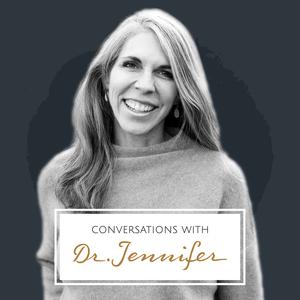 Conversations with Dr. Jennifer
Conversations with Dr. Jennifer
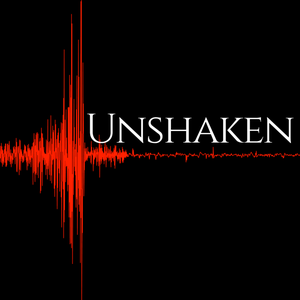 Unshaken Saints
Unshaken Saints
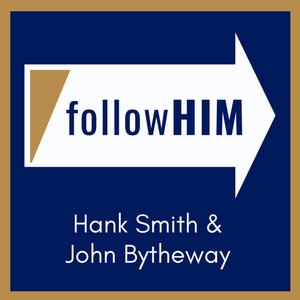 followHIM: A Come, Follow Me Podcast
followHIM: A Come, Follow Me Podcast
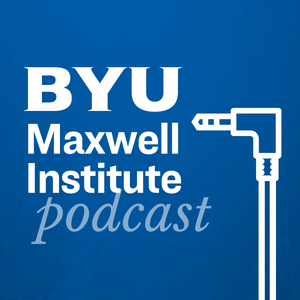 Maxwell Institute Podcast
Maxwell Institute Podcast
 Leading Saints Podcast
Leading Saints Podcast